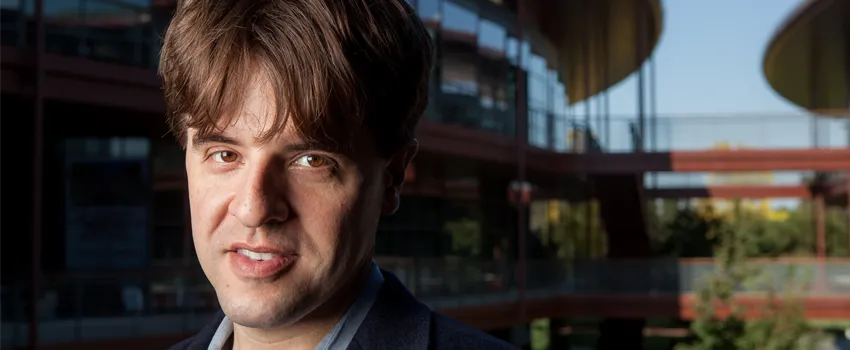
Inside Stanford Medicine - May 21, 2012
Over the last seven months Karl Deisseroth, MD, PhD, has received several major awards recognizing his seminal work in the development and application of optogenetics — a now-widespread research technology that involves the engineering of nerve cells so that they can be stimulated or inhibited by different wavelengths of light.
Deisseroth is associate professor of bioengineering and of psychiatry and behavioral sciences and a member of Bio-X, the university’s interdisciplinary research program.
This month, Deisseroth received the Perl-UNC Neuroscience Prize, awarded by the University of North Carolina Neuroscience Center, and delivered his prize lecture at the university on May 14. The $10,000 prize recognizes a seminal achievement in neuroscience, and was awarded for the development of optogenetics for studying neural-circuit functions. Two of his former student trainees — Feng Zhang, PhD, and Edward Boyden, PhD, who are both now junior faculty at the Massachusetts Institute of Technology — will also share in the prize and will receive their shares at a joint lecture in September.
In November, Deisseroth was honored with the 34th annual W. Alden Spencer Award and Lecture, which the Department of Neuroscience in the College of Physicians and Surgeons at the Columbia University Medical Center gives young investigators in recognition of outstanding research contributions in neural science.
Also in November, Deisseroth, along with three algal biologists (Peter Hegemann, PhD; Georg Nagel, PhD; and Ernst Bamberg, PhD), was awarded the 2012 Klaus Joachim Zuelch Prize, for their scientific discoveries in optogenetics. The Zuelch prize is given by the Gertud Reemtsma Foundation, which is administered in trust by the Max Planck Society. It will be awarding Deisseroth and the three other investigators equal shares of the 50,000-Euro ($66,000) prize in Cologne in a September ceremony. At the event, the recipients will deliver presentations on their discoveries.
Finally, in February, Deisseroth received the Rush and Helen Record Neuroscience Award from the Baylor College of Medicine in Houston. The award comes with a $2,000 prize.

